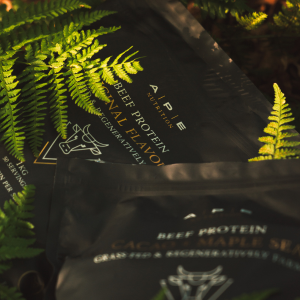Did you know, until the 1990s, women were mostly excluded from scientific trials and clinical studies? For many reasons, including risks to unborn children, and hormonal shifts causing ‘unreliable’ results, women were left out of important studies that would go on to shape mainstream health advice.
So, what does this mean?
It means that most of the traditional advice on medication, nutrition, fitness and health in general is based on information from men, without taking women into consideration. It means that if you’re a woman who has been following what you think you ‘should’ do to be healthy, you could be following a path that isn’t serving you, and could be making health issues worse. And it means that whilst the health industry has made huge advancements in recent years, we’ve only just started scratching the surface when it comes to truly understanding women’s health.
Essentially, it means that if you’re a woman, much of the mainstream health advice you’ve read, heard and followed probably isn’t right for you. To quote Dr Stacey Simms; ‘women are not small men’, and it’s time we stopped being treated like it…
Understanding Your Unique Needs
Female biology is a little more complex than male biology. Our bodies run on patterns and rhythms, and whilst a typical male body experiences a hormonal cycle that fits within a 24-hour window, women’s bodies also have a 28-day cycle to work with. Male hormones typically rise and fall over the course of the day, with testosterone levels peaking in the morning, and declining throughout the day. Women however, have a menstrual cycle that causes fluctuations in hormones like progesterone, oestrogen, FSH, LH, as well as lower levels of testosterone.
We’ll dive much deeper into how to work with your menstrual cycle in part 2 of this blog, but for now, know that if you feel different from day-to-day and week-to-week, it’s because you are different. As women, we shouldn’t feel pressured to show up looking and feeling the same every single day, because we’re not the same person every day. If you notice cravings or shifts in energy or mood throughout the month, it’s likely due to changing hormones, which may require you to make subtle changes in nutrition and lifestyle choices. Remember; you are not a small man, and it’s ok to step back from the mainstream health system that is treating you like one…
Working With Your Body & Bloodwork
For decades, various health trends have pushed women into working against their bodies, promoting skinny, curvy, hour-glass-figures or stick thin as desirable traits. Today, with a constant connection to social media, it can be even more difficult for women of all ages to ignore the calls to follow certain diets in order to achieve what we’re told is the ‘right’ body.
When it comes to truly optimising your health and working with your body, learning about different health parameters, predispositions and understanding your current health status can go a long way towards giving you the information you need in order to become deeply educated about you. Following mainstream advice will get you so far, but by taking responsibility for your own health, you can grab the steering wheel and direct your life towards a future of vitality and feel confident about your health choices. Here are a few things we think it’s worth checking up on and testing:
Iron levels: Especially for menstruating women, low iron levels can be common, leading to fatigue, irritability, exercise intolerance, brittle hair and nails, and poor brain function. If your periods are heavy, if you’ve recently given birth, or you don’t consume much heme iron in your diet from red meat or organs, this can contribute to low iron levels. By testing your levels, you can then take steps towards optimising your iron status with an iron-rich diet, and natural supplements like our Grass Fed Beef Spleen, which contains 40% of the RDA of iron for women. The best part about consuming iron from foods and organs like beef spleen, is that it comes packaged with co-factors that improve absorption, as well as nutrients that prevent the body from absorbing excess iron, whereas synthetic iron supplements often come with a host of side effects and are not nutritionally balanced.
“Incredible!! Noticed a difference as soon as I took the capsules.” – Cece (Spleen)
B vitamin status: B vitamins are rapidly ‘used up’ in times of stress or when your body is working extra hard, and low B vitamins can feel very much the same as low iron levels. B9 (folate) and B12 also work closely with iron to promote healthy red blood cells and energy production. Especially if you’re experiencing fatigue, weakness or neurological issues, its worth getting B vitamin levels tested. Most animal products contain B vitamins, so by increasing them or supplementing with something like Beef Organs or Beef Liver, you can raise these levels. Sometimes a lack of stomach acid or poor digestion can cause malabsorption of B vitamins, in which case working on your digestion or trying a Digestive Organs Complex may be helpful.
Thyroid markers: Symptoms like fatigue and low energy could also point towards low thyroid hormone levels. Other symptoms of low thyroid or hypothyroid often include a persistent low body temperature, hair loss, weight gain and thinning eyebrows. Selenium and iodine are both needed for a healthy thyroid, but it’s important to understand where your thyroid is at before making changes.
Bone density: As we age, bone density can decline, especially past menopause. Whilst this naturally occurs, it doesn’t mean we have to live with fragile bones. There’s plenty you can do to improve bone health, from weight-bearing exercise to increasing bone-building foods and using supplements like our Whole Bone Matrix. You can read more about bone density in our blog here too. A DEXA scan can help you understand your bone density and body composition, giving you the information to go ahead and make necessary changes.
Female hormone profile: This sort of test can assess potential imbalances which may be contributing to symptoms or fertility challenges. Key hormones like oestrogen, progesterone, LH, FSH, prolactin and thyroid hormones are often tested, to help you understand the underlying cause of health issues. Once you know how your hormones are operating, you can take steps to balance them. We hear from women all the time who have had incredible results from taking our Optimised Female capsules, which work to balance female hormones.
“This supplement without a doubt is changing my life for the better - I am entering my 5th week of taking Optimised Female and can honestly say it has made a huge difference. I started off as advised taking 1 and have each week built up and am now taking 5 a day and will find the happy medium more long term. My PMS symptoms are so much better and as I am hitting peri-menopause it has eased the symptoms I was feeling such as agitation, fatigue and agonising cramps. I will continue to take these and will be making a purchase of the protein powder in due course.” – Charlotte F. (Optimised Female)
HbA1c levels: This test detects your blood glucose levels over the last few months, giving you an average of your blood sugar levels. Whilst mainstream advice warns against high cholesterol, it’s actually issues like high blood sugar, high blood pressure and inflammation that tend to cause the body initial damage, which cholesterol then gets the blame for. Balancing your blood sugar goes a long way towards promoting more balanced hormones, less inflammation, a healthy weight and better energy levels.
Kidney and liver function: The kidneys and liver are absolutely vital when it comes to overall health and detoxification. For women’s health, the liver is especially key for detoxifying hormones like oestrogen. Poor liver health can mean oestrogen isn’t properly detoxified, leading to ‘oestrogen dominance’, which can then contribute to irregular periods, mood changes, severe PMS, fatigue, weight gain, insomnia and more. By improving your kidney and liver health, you’re able to support your body’s overall detoxification and balance.
Family history: Whilst genetics doesn’t always decide your fate, it can be helpful to know what you may be predisposed to. Then, you can take steps to prevent any issues you may be more genetically likely to experience. If you have a family history of osteoporosis for example, it may be a good idea to focus on bone health, whilst a history of cardiovascular disease means heart health may be a priority for you. Our Grass Fed Beef Organs contain heart, which is often used to improve heart health itself, with high levels of CoQ10 and B vitamins, zinc iron and selenium, which all contribute to heart health.
Ancestry: Knowing which part of the world your ancestors were from can help you understand why your body may favour certain foods, and react against others. Those with northern European heritage for example, tend to digest dairy better than those without this ancestry, whilst someone with heritage closer to the equator may metabolise tropical fruits better than others. The more information you have, the more you’re able to create a diet and lifestyle that truly serves you.
Your life stage: Vitally, remember that your age and life stage play a huge role in your needs. An eighteen-year-old female has very different needs to an eighty-year-old female on so many levels, so don’t pay attention to mainstream advice that simply says ‘all women should XYZ’. For example, your need for collagen shifts dramatically with age. After around age 30, collagen production declines, meaning we need to start supplementing in order to protect skin, bones, hair, nails and the gut lining. After menopause, lower oestrogen levels cause an even more rapid decline in collagen, so you may need to supplement with higher levels.
Understanding Your Nutritional Needs
As we’ve mentioned, women’s needs are entirely different to men’s, and they’re even different week-to-week and day-to-day. Author of Real Food For Fertility and Real Food For Pregnancy Lily Nichols RDN says that ‘women, particularly those of childbearing age, are often deficient in iron, vitamin D, iodine, vitamin B12, and choline. Additionally, omega-3 fatty acids, specifically DHA, can also be depleted during pregnancy and breastfeeding’. This doesn’t mean you have to have recently given birth in order to be depleted of nutrients; whether you had a baby last week or ten years ago, or you don’t have children at all, these nutrients are still likely to be depleted in many women.
Understanding the basics of women’s nutritional needs however, is the beginning of helping you choose the foods and supplements that can help to transform your wellbeing. Here’s a brief guide to the nutrients women need most:
Iron: Women with heavy periods, poor digestion, low stomach acid or who have recently been pregnant or given birth can all be low in iron. You need iron to carry oxygen through your body, supporting energy levels, mood, brain function and muscle health. Generally, women need to consume more iron than men in order to meet their needs, with heme iron from animal sources being the preferred version, as it is much more easily absorbed by the body than plant based non-heme iron. Good sources include red meat, eggs, poultry, fish, beef liver and beef spleen.
Folate: Crucial for various bodily functions, including the formation of red blood cells, healthy cell growth, and proper development of the nervous system, it’s important especially for women who want to become pregnant to have good levels of folate on board. Some of the best sources include liver, leafy greens, lentils, chickpeas and asparagus.
Calcium: Needed to build strong and healthy bones, we also need good levels of vitamin D3, K2 and magnesium in order to properly absorb calcium. This becomes even more important during and after menopause, which we’ll discuss in part 3 of this blog series. Good sources include milk (especially raw milk), yoghurt, cheese, butter, leafy green vegetables, sesame and broccoli.
Vitamin D: The very best source of vitamin D comes from sunlight, specifically the UVB rays from the sun, which are stronger the higher the sun is in the sky. Controversially, sun cream actually blocks UVB rays, so if you’re slathering it on, know that whilst you may be preventing sunburn, you’re also blocking vitamin D production. Vitamin D is needed for immune health, hormone and blood sugar balance, fertility, bone health, metabolism and so much more. As well as sunlight, food sources include oily fish like salmon, mackerel, anchovies, sardines and herring, egg yolks, beef liver, and certain mushrooms like shiitake.
Magnesium: Crucial for energy production, bone health and sleep to name just a few, magnesium is ‘nature’s tranquiliser’ so if you’re stressed or anxious, consider this an important nutrient for you. Taking an Epsom salts bath can help saturate the body with magnesium, as well as providing a moment of relaxation. Food sources include dark leafy greens, black beans, pumpkin seeds, sunflower seeds, and cacao.
Omega 3s: Needed to help reduce inflammation, omega 3s also support skin and eye health, and joints and brain health. Since women are at a higher risk than men of developing diseases like Alzheimer’s, focusing on brain health is important, especially as we age. Research shows that omega 3s and DHA in particular can reduce the risk of Alzheimer’s and dementia. Some of the best sources include oily fish, followed by flax seeds, chia seeds, algae, and walnuts.
Iodine: Important for thyroid health and fertility, low levels of iodine can cause low thyroid or hypothyroidism. Whilst it’s important to understand which type of thyroid issue you may have (as some thyroid problems do not respond well to extra iodine), maintaining good iodine levels is important for women’s wellbeing. Good sources include seaweed, fish, eggs and dairy.
Choline: A nutrient that has only recently been given as much attention as it deserves, choline is vital for the health of the heart, brain, liver, as well as supporting a healthy metabolism and nervous system. It also helps regulate memory, mood and muscle function. Good sources include egg yolks, beef, liver, chicken, fish, dairy and cruciferous vegetables.
Bitter greens: Finally, it’s important to include bitter greens regularly in order to promote healthy bile flow and liver function. The liver helps to metabolise hormones like oestrogen and cortisol, whilst bile carries them out of the body to be excreted. By improving this function, hormones can remain more balanced, and you’re less likely to experience symptoms like PMS, mood swings, irregular cycles, fertility challenges and weight gain. Good sources include rocket, chard, dandelion greens, and chicory.
Protein
Our bodies need protein for a variety of different reasons beyond building/maintaining muscle. Consuming the right amount of highly-bioavailable protein (1.5-2 grams/lbs of body weight) plays a crucial role in supporting hormone balance, thyroid function, metabolic health, healthy immune function, aids in blood sugar balance and more. And especially because women’s hormones fluctuate throughout our monthly cycle, having protein (first thing in the morning and at least 40g/meal) becomes a foundational support for healthy hormones. Here’s how; our endocrine glands make hormones from the amino acids within protein. Specific protein-derived hormones include prolactin, growth hormone, and IGF-1 and TSH (thyroid stimulating hormone). Together, IGF-1 and growth hormone manage the normal growth of bones and tissues, and TSH essentially tells the thyroid to make thyroid hormones. Protein supports thyroid function, so if you’re dealing with a sluggish or under-active thyroid (which tends to occur more as we age) protein is vital. Protein is also essential for the production of sex hormones such as oestrogen and progesterone (vital for female fertility), and beef protein in particular. Good sources include red meat, fish, chicken, high-quality protein powder, and organs.
We hope this is a useful glimpse into how and why mainstream ‘health’ advice may not be serving you, and the power of taking your health into your own hands. Check back soon for parts 2 and 3 of this blog series on women’s health to learn more and empower yourself with the knowledge to make positive change.
Written by Emma Newlyn
Emma is a health and nutrition coach who specialises in blending ancient wisdom and modern health techniques to help people feel well inside and out. Emma brings over 12 years of experience in the health industry to APE Nutrition, and specialises in answering your nutrition and supplement questions, and creating articles on many different areas of wellbeing.






